Litcraft in Libraries - Two New Regions, 13 June 2019
June 18, 2019 | james
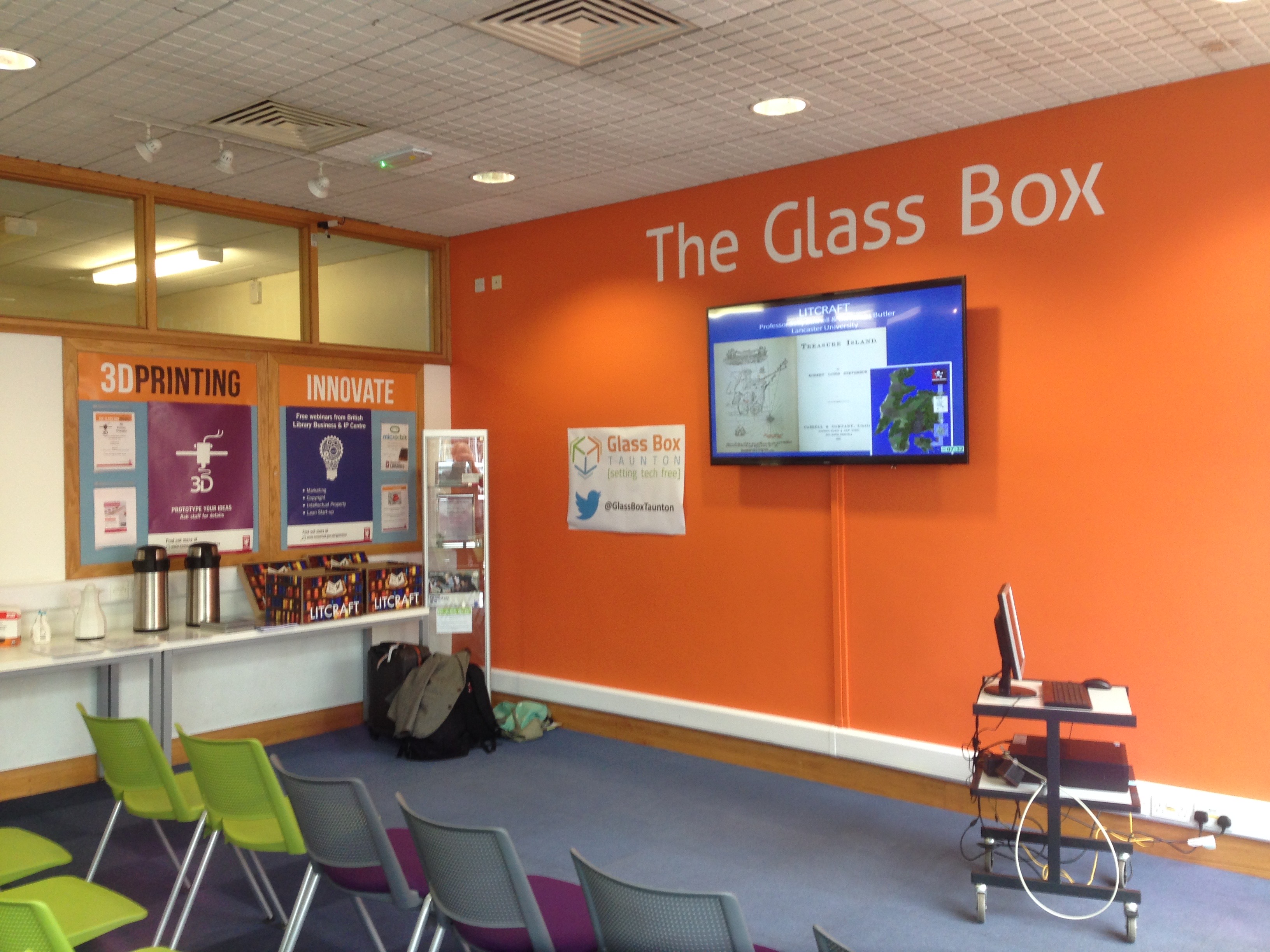
We are very pleased to share that two more regional county library services have joined up with us to run Litcraft sessions - thanks to the tireless efforts of Chloe Reynolds and Daniel Clark. Joining the trio that have been rolling out Litcraft for nearly a year now (with excellent results, judging from the feedback dilligently collected by the admins) are Somerset and Devon - hoorays!
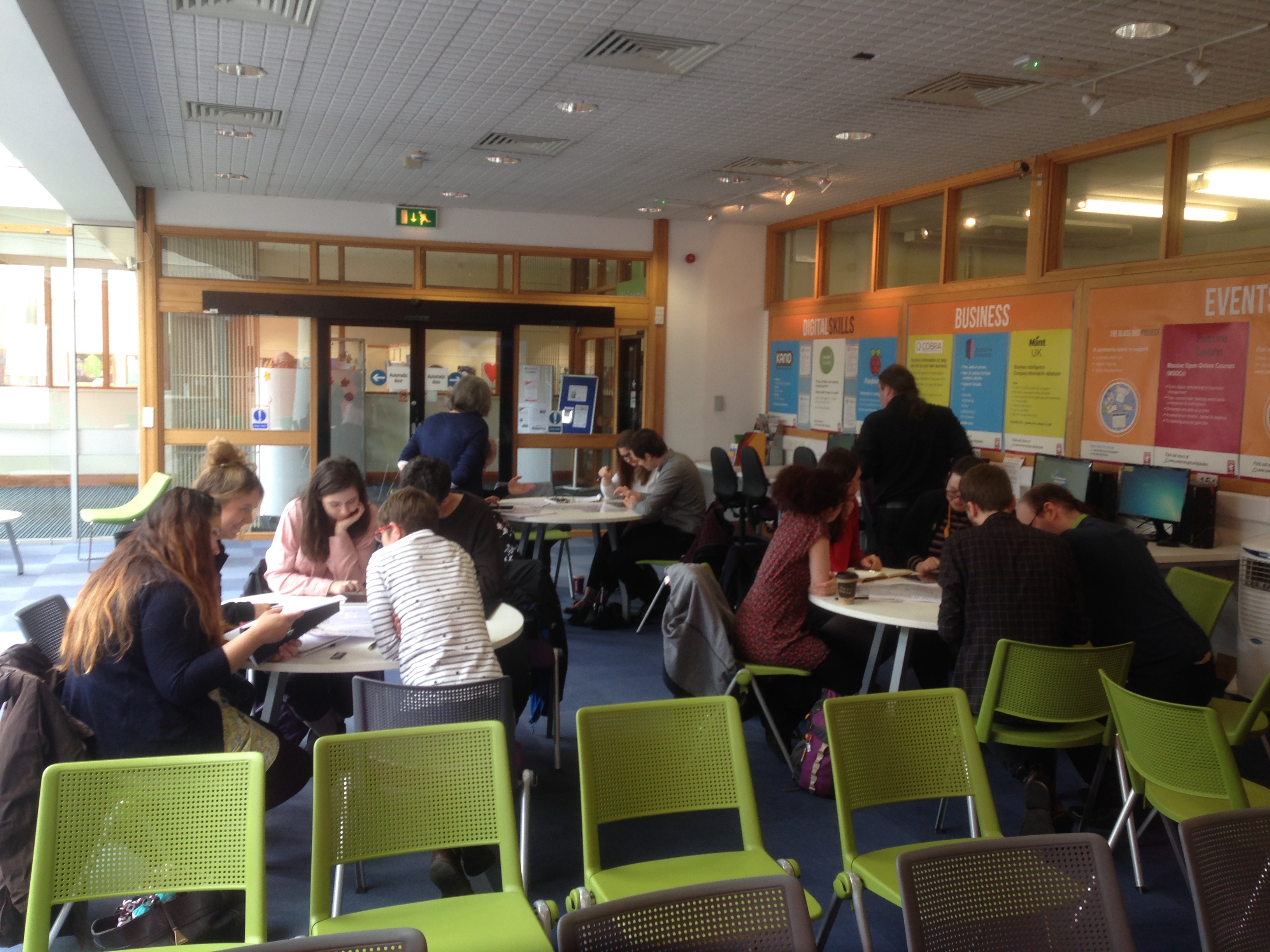
Sally and James were invited down to Taunton to run a training session for local staff, and despite the horrific weather were really happy to see so many people enthused about the project. It was a really fun session, with many of the participants having at least a little knowledge about Minecraft, but the extent to which everyone engaged with the lessons was a delight to behold. Especially as the genuine question 'why do I need these gold nuggets - I can't eat them!'. The exact sort of engagement we have striven for from the start. So keen are they, we will be sending an extra few boxes down to allow several sessions to run simultaneously. We are incredibly excited to see how things turn out, especially as it will complement the huge digital push planned by Libraries Unlimited nicely. And we are on track to hopefully announce even more partnerships soon...
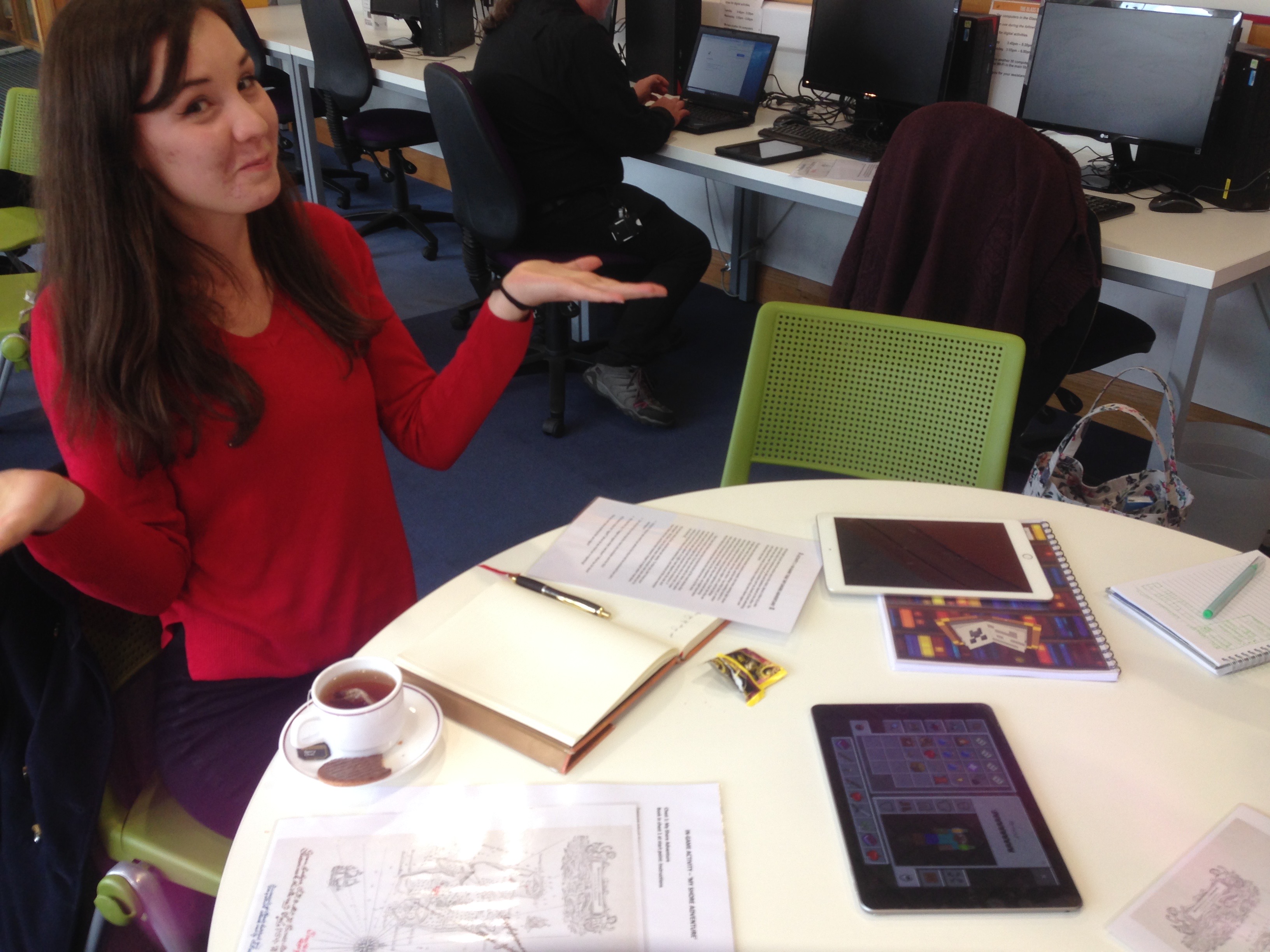
Transforming Literature, 7 June 2019, Milan
June 10, 2019 | james
Sally and James have just returned from an event organised by the StoryVR team at the National Museum of Science and Technology in Milan, whose aim was to bring a wide and international range of approaches to encouraging literary engagement through digital platforms together. Federico Pianzola graciously extended an invitation after seeing the Guardian article on Litcraft (two days after James made the revised videos, luckily enough!), and the initial workshop session was an in-depth trial of the team’s exciting build, which combines audiobooks, dynamic environmental backgrounds, and (optionally) on screen text. It is a fascinating concept, and every attendee identified a range of ways in which the concept could be adapted once the core model is released.
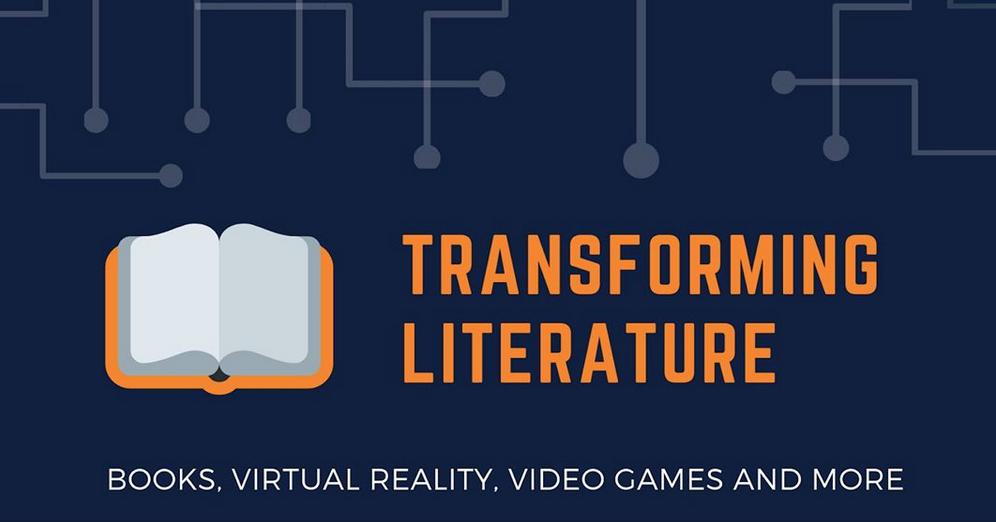
The presentation session was a novel experience for our team, as it was undertaken in a chat-show format – hosted by digital artist Arthur Clay, with excellent talks by Wayne de Fremery, Federico and Luca Deriu, and Natasa Milic-Frayling focused around transforming literature to provide new means of visual presentation.
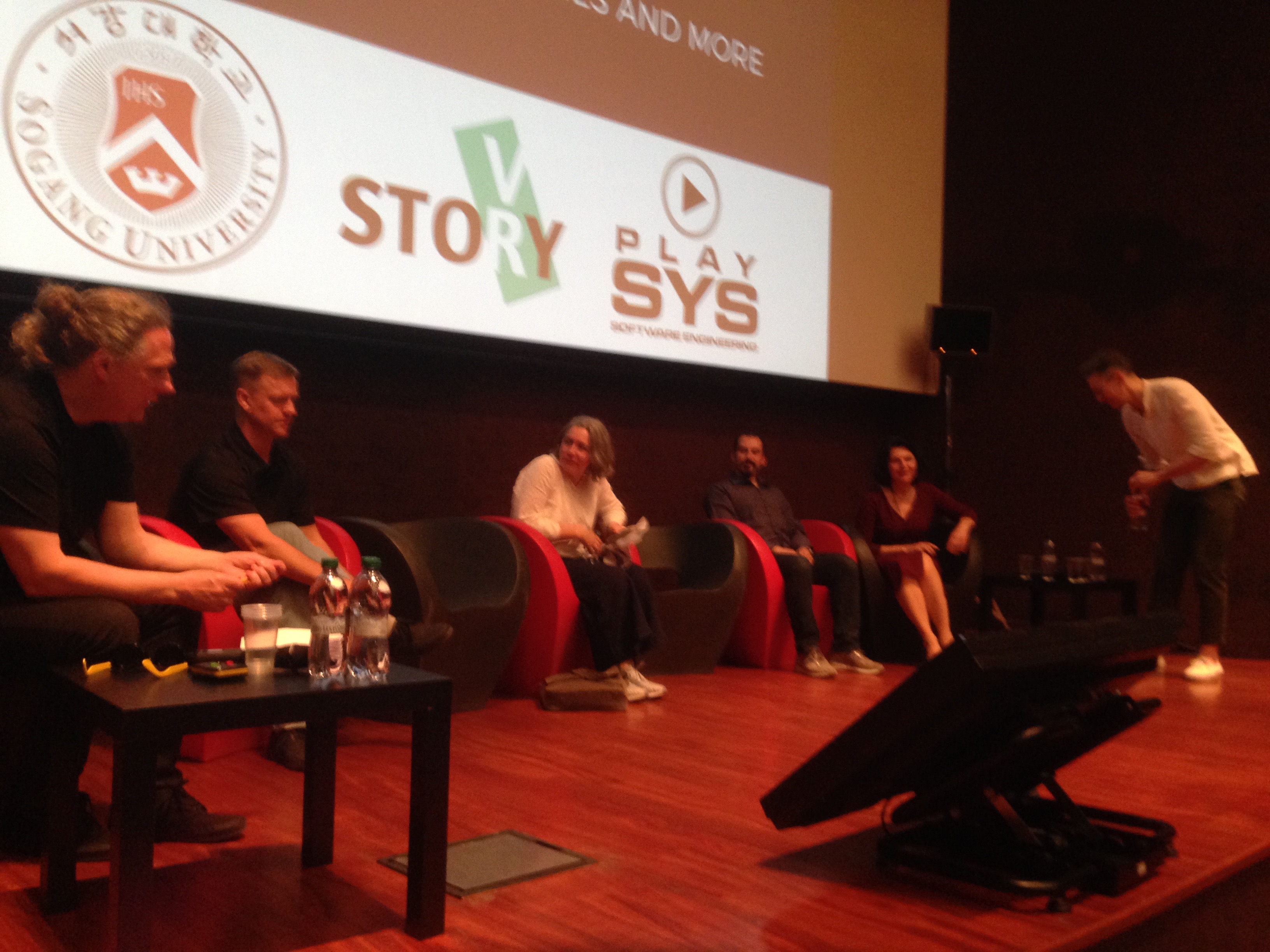
The session was recorded (so we can hopefully provide a link shortly), but – as with all good events – the cohorts identified so many areas of potential future collaborations. It was an excellent session, followed by one of the best pizzas James has ever had (and that’s no small claim, from him!).
Our sincerest thanks to the StoryVR team once again, and we hope it will be the first of many such events on such an engaging area.
Off the Page chap.2, 12-13 April 2019, British Library
April 15, 2019 | james
Just concluded a busy couple of days with our project partner – the British Library – commencing with an invitation to present on our coding and visualisation techniques as part of a Digital Scholarship workshop series. There was a fantastic turnout from staff with a staggeringly wide range of research interests – and the session could not have gone better. Everyone (bar a single member who was too heavily invested in GIS to be willing to consider other mapping approaches) gave us really positive feedback, showing just how versatile an offer our approach can be.
The reception was so good, we hope to head back soon to run a follow-up session, where attendees can bring their own dataset samples, so we can provide a more hands-on session to really show the benefits of our approach to mapping – which can be applied to any form of space no matter how ‘real’ or ‘imagined’ – that is the beauty of its design. We are getting very close to making a public reveal of our methodologies, but it has matured a lot in the past six months.
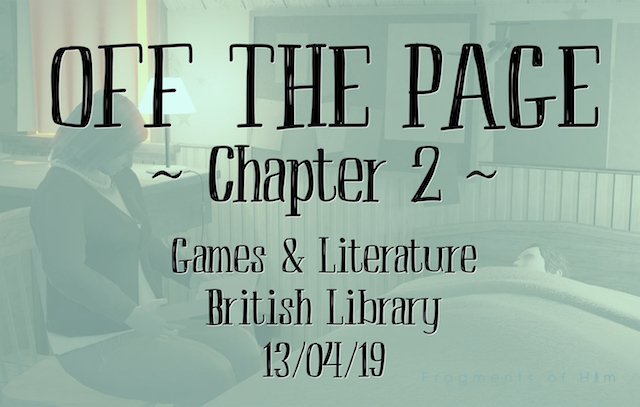
Day two comprised of a day filled with fascinating talks and demonstrations in Off the Page, Chapter 2 – organised by Stella Wisdom and friend of the project Sarah Cole. A huge turnout, plenty of cake, and an opportunity to see other creative attempts to combine literature with games (including the next Mission Maker – for the classic Macbeth). Two event-filled days, very tiring but equally rewarding.
AAG 2019, April 3-7 2019, Washington DC
April 9, 2019 | james
Targeting an entirely new audience, James headed to the American Association of Geographer's 2019 meeting in Washington DC, to present on one of threee panels dedicated to: Geographies of Digital Games. There was an incredibly high demand for slots on the theme, so we were lucky to be granted a slot - but whilst one panelist had to pull out the evening before, this just meant we had an extra 15 minutes to talk about Litcraft (and the project proper, of course).

the panels were filled with fascinating papers, highlighting just how versatile the reaserch area was. From looking at map use in game, to the was in which AR games (such as Pokemon Go) didn;t consider physical or cultuural inappropriateness against particular locational generations. It was a pleasure to be part of such a program
An incredibly useful panel, good contacts were made, sound advice received (and given), and suggestions for North American partnerships (which we are sorely lacking currently), all borne from a disciplinary perspective we hadn't yet been able to engage with. Especially given our thoughts and proactive work against a GIS standard... but such fears were ungrounded. The event was a thorough success and well worth sending him over to. Thanks to Ian Gregory for pointing us in their direction initially! It was a staggeringly huge conference
Campus in the City, 23 March 2019, Lancaster
March 25, 2019 | james
Another year has passed (hard to believe!) so Sally and James once again presented Litcraft directly to the general public at Lancaster University’s Campus in the City engagement event. The day proved an ideal opportunity to showcase some of our new non-digital design tasks – especially given the likelihood of younger participants given the event and day (Saturday) – as well as unveil our shiny new banners and promotional material.
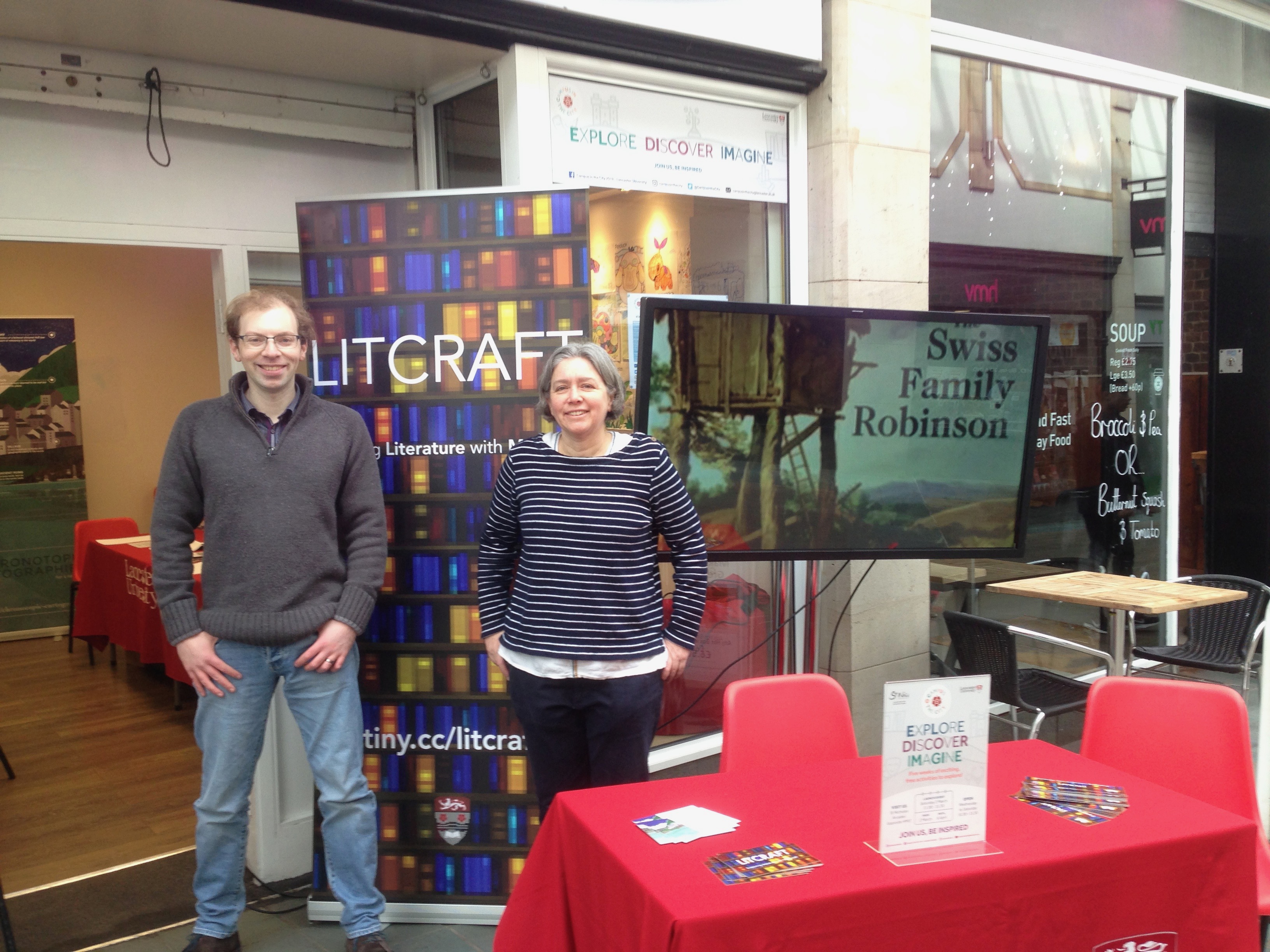
It was a crisp day, leading to a higher attendance than last year. A couple of interested secondary English teachers even wandered in to have a good chat (the banners piqued their curiosity!) – exactly one of the outcomes we had hoped for. Feedback was readily forthcoming (directly from parents – always a valuable source of opinion) and was universally positive.
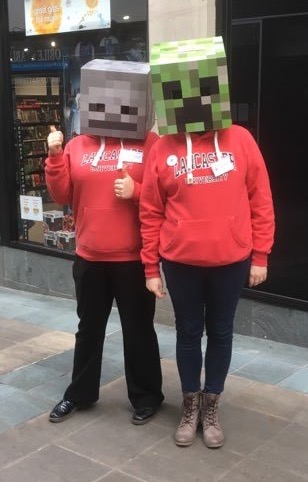
The event team were good sports in wearing our cardboard Minecraft heads (James steadfastly refuses – he knows how many people have worn them previously), which contributed to comfortable and welcoming atmosphere – which made the event so positive. It is a great initiative run by Lancaster University, and kudos to this year’s organiser Anna Mackenzie.

